In this article I am going to talk about what egg binding is, the symptoms, causes, what you need, the at home treatments, prevention tips, and everything else there is to know.
To understand what egg binding is you first need to know the process a hen goes through to make the egg. The entire process of making an egg takes about 24-26 hours, starting when a yolk moves from the ovary into the oviduct. From there it gets covered in the white part of the egg, called the albumen, then after passing through the isthmus it's into the shell gland where the shell gets created in the span of 20 hours. Then the egg is turned around by contractions of the uterine wall, so it's laid large end first. Pretty cool right!
Egg binding is when an egg is stuck anywhere in between the beginning of a hen's oviduct to her vent. In rare cases a hen will be able to push it out on her own, but most times it will lead to bleeding, damage to internal tissue, infection, and death if left untreated. It's something you can find a lot of info about online and thankfully it's treatable from home. You will need to act as quickly as possible because if the hen doesn't pass the egg or isn't able to defecate/poop in 24-48 hours she will die.

Photo Credits: Chickens&More/Chris Lesley
Not every hen has the same symptoms, and sometimes symptoms are mild during the first few hours of egg binding and get more extreme after the hen has been bound for longer. Keep in mind, just because a hen hasn't laid or is showing these symptoms it doesn't mean she is egg bound.
Disinterest in drinking
Acting stressed and going in and out of the nesting box repeatedly
Decreased activity
Shaky wings
Walking like a penguin
Bloated vent
Pasted vent
Constant uncharacteristic sitting
Passing wet droppings
Not being able to pass droppings
Droopy comb
Pale wattles
Butt feathers pumping
Feathers on lower back raised
Panting
Purple comb
Inability to roost
Limping due to egg putting pressure on nerves
Large abdomen
Notice the posture of the hen in the picture below. Her lower back feathers are lifted and her tail is pointing down. This is a classic stance of an egg bound hen. She also has a pale face and eyelids, even though her comb and wattles are red. Something I have seen in egg bound hens many times.
*This isn't info by a vet but from my personal experience*

Photo Credits: [our4chix] from BackYardChickens
Cramped space/coop and run isn't big enough.
Uncomfortable weather like humid/hot summers, and cold winters.
An overload of Intestinal parasites.
Predators:
Chickens should be ok with seeing predators far away in the sky or around the yard and not be stressed, but predators including hawks, bears, and coyotes trying to get into the run, attacking your chickens, or stalking them will make them stressed.
A new coop/A recent move/New flock members:
Moving to a new coop, or getting more flock members will cause your chickens to become stressed. The best way to combat stress caused by moving to a new coop, or getting more flock members is to make sure you are taking it slow and minimizing any stressors. You can also add enriching food or toys to keep them calm/busy.
Egg retention:
A hen might "hold in" an egg when her favorite nesting box isn't available or, there aren't enough nesting boxes. This will cause her to become egg bound, as well as cause damage to her muscles. To make sure your hens don't "hold in" their eggs try using the ratio of 1 nesting box per 4 hens, (but the more the better), as well as making all the boxes identical so there isn't a specific nesting box everyone wants to use.
Premature laying:
A hen that is laying prematurely will lay an egg before her body is ready causing her to become egg bound. Make sure you aren't giving your young hens artificial light to try to make them lay early.
A calcium deficiency:
Calcium isn't needed just for strong bones and eggshells, hens also need calcium to help their muscles contract correctly so they can push eggs out.
Genetics:
Hens bred for production purposes alongside petite hens have a higher chance of becoming egg bound.
Dehydration:
A dehydrated hen will have a harder time laying her egg because her oviduct is dry. Make sure their water bowl is always clean and filled. Some hens will refuse to drink from a dirty water bowl so make sure they have access to clean water all the time. If you believe your hen is suffering from dehydration (or the whole flock even) give her/them hydro hen or another hydrating supplement in the water.
A nutritional deficiency:
Your hens need to get the correct amount of protein, vitamins, and minerals like selenium, vitamin E, vitamin D3, and magnesium to lay their eggs, a deficiency will cause problems.
Large or misshaped egg:
A large or misshaped egg can get stuck in the oviduct and cant be pushed out. In worst-case scenarios, a large or misshaped egg can get stuck and block not only itself but another egg in the oviduct. This can happen when an egg is stuck high up in the oviduct long enough for another egg to be created and pushed by the contractions, causing a 2 egg traffic jam.
Oviduct infection and disease:
If a hen has an infection in her reproductive tract her muscles will weaken. If your hen is battling a disease it can cause the oviduct to swell, making it harder to ly the egg.
Soft shelled egg:
A soft egg is hard to push out, and most times cant be pushed/laid.
Weather:
Extremely cold weather can stiffen a hen's egg laying muscles.
It's important to try to keep all these things on hand since they are useful in emergencies. They can be purchased at your local grocery, online, and farm animal stores.
Tums or (calcium carbonate):
This is the most easily available calcium boost for your egg bound hen. It can be purchased pretty much at any grocery store/gas station.
Dose: one tum's crushed.

Calcium Gluconate:
This is meant for cattle but can be given to egg bound hens as a calcium boost, to help their muscles contract. Make sure the bottle says sterilized and not terminally sterilized. You will also need a needle and syringe.
Dose: 1cc for bantams and 3-5 cc for standard or large breed given only once.

Epsom Salt:
Try to use nonscented every time. I'm not sure if scented Epsom salt can cause problems but those perfumes are strong, and chickens have sensitive respiratory tracts. If all you have on hand is scented Epsom salt, try to keep their face away from the water.

A Tub:
You will need a tub big enough to soak your hen correctly (water should almost reach her back). You can use a sink, wide bucket, a tub, anything goes.

Photo Credits: Backyard Hencam
Oil:
You will need some oil, or vaseline to put around/in her vent to help her pass the egg easier. This is what I used, you can also use warmed coconut oil.

Gloves:
Use gloves when applying oil to/in the vent to keep away problems caused by being unhygienic.

Towels:
It's a good idea to have a few towels set aside specifically for chicken use. You will need these to dry her off after the bath.

Hair Dryer:
You can also use a hairdryer to dry her off.

Now that we have talked about symptoms and causes we will talk about the at home treatment. Before you start to treat her, you will want to know where exactly the egg is stuck to help you understand the situation better. This can be done in three different ways.
The first way is to keep your hen in an isolated area where you can monitor her poop. This can only be done if she has eaten food/or has a fullish crop. Monitor her for 15 minutes. If in that time she hasn't pooped her body has probably already shut off the intestines and the egg is near to the vent. If she is pooping/has pooped in the past 20 minutes the egg is probably stuck somewhere higher up, in the oviduct.
*note this is experimental and probably has a 70%-90% chance of being accurate.*
The second option is to glove up and lubricate your finger. You're going to insert your finger pointing slightly upwards. Push your finger in about an inch or so to feel for an egg. If you feel an egg be careful to not push it further up. If you don't feel an egg then it may be further up still or, she may not be egg bound. (this would mean something else is causing her to act this way). If you did feel an egg apply some more oil or vaseline to your finger and lubricate inside her oviduct to help the egg pass more easily.
The third opt
 ion is one that is experimental and is from my personal experience. You need to gently hold her between your hands with her head facing inwards toward you. Move your right hand to the right side of her abdomen, gently rub your fingers and feel for a rounded hard shape. If you feel a rounded shape about an inch wide/tall, that's probably the egg.
ion is one that is experimental and is from my personal experience. You need to gently hold her between your hands with her head facing inwards toward you. Move your right hand to the right side of her abdomen, gently rub your fingers and feel for a rounded hard shape. If you feel a rounded shape about an inch wide/tall, that's probably the egg.
The photo shows the exact area where you need to massage and the vid shows how to massage to feel for an egg.
(I can't figure out how to make the vid smaller so my apologies in advance )
)
Next, give your hen a crushed-up tum or calcium gluconate. Either one will give her a much-needed calcium boost and help her muscles contract. Give her whichever one you have but never both.
If you are giving her tums (calcium carbonate) see if she won't eat it directly from your hand (broken into bite-sized pieces) if not, crush one tum into a crumble and mix with scrambled eggs, or yogurt and give it to her, if she still refuses, break the tums into 4-6 pieces and put them in her mouth one by one, she should swallow them without too much fuss.
The other option is to give her calcium gluconate. It's meant for cows but is safe for chickens too. The bottle needs a needle and syringe for you to pull out the liquid. The calcium gluconate along with the syringe and needles can be bought at most farm stores including TSC. The dose is 1 cc for small bantams and 3-5 cc's for bigger/standard birds. Make sure the bottle says sterilized and not terminally sterilized. After pulling the correct dose out of the bottle remove the needle from the syringe and slowly drop the liquid into her mouth, allowing her a few breaks to swallow.
Now that your hen has gotten a calcium boost you are going to soak her in an Epsom salt bath. Just make sure that it's deep enough so that the water will cover her vent and almost reach her back. Add around 1-2 cups of Epsom salt. The bigger the container the more Epsom salt you want to add. Then mix well with your hand, scraping the bottom to make sure all the salt has dissolved. Make sure the water is warm but not too hot for her.
(pro tip: use your elbow to check water temperature since it's more sensitive to heat than your hand or palm.) She might struggle to get out but should calm down in a few minutes. She will need to soak for 20-30 min. If possible try giving her some snacks to keep her busy. Next, pull her out and dry her off carefully with a towel or hairdryer.
The next step is to put her in a chicken hospital in a quiet and darkened area, below are some examples.




Photo Credits: 1.Medfield02052's blog 2.Tilly's Nest 3.The Chicken Chick 4.Fresh Eggs Daily
If you don't have a dog crate or a DIY chicken hospital on hand you will need to quickly put one together. What makes a good chicken hospital for any sick or injured chicken, especially an egg-bound hen? You can use a large cardboard box, a crate, a mini tent, pretty much anything. Next, make sure you have good bedding and plenty of it. Make sure it's big enough for her to stand and move a little bit. Something that's 1x1x1ft or 1x1x2 ft is good as a minimum. Putting her back in the coop/run even if she's in the chicken hospital isn't a good idea because she needs peace and quiet to lay. The noises and any peeping toms may make her feel uncomfortable and unable to lay. Make sure wherever you put her that it's not cold or hot, we want her to be as stress-free as possible. Some examples are in the house, garage, or shed. If you do not have anywhere else to keep her she can stay in a makeshift chicken hospital in the coop but make sure she has enough privacy and that you check up on her often.
Before you put her in your chicken hospital, glove up, move her vent feathers aside and massage some veggie oil, warmed coconut oil, or vaseline on/in her vent to help the egg pass. Put her in the chicken hospital in a darkened place, and wait for 1 hour. If you go to check on her after the 1 hour has passed and see she has made a nest or looks to be in an egg-laying position this is a good sign so leave her for another hour. If she still hasn't laid you will need to repeat the bathing process up to 4 times. If you are lucky the egg will have been passed by now (YAY!).
Sometimes even with the Epsom salt bath's the egg won't pass. What should you do now? By now there are usually two outcomes. If you can see the egg poking out of the vent you can still do an at home treatment. If you look at the picture below, you can see that the egg is stuck at the vent. If you leave your hen with that egg as is it could either remain stuck and kill her from internal infection or, if she is successful in pushing out the egg she will get a prolapsed/torn vent. You don't want to deal with either of these so here is what you need to do.
Before you go any further watch this youtube vid that shows exactly how to treat this problem.

Photo Credits: The Whittier Housewife
REMEMBER TO BE VERY CAREFUL
This is something dangerous that needs to be done with patience and a steady hand. This is a dangerous last resort solution that could do more harm then good if done incorrectly. You will need to prep the hen as well as yourself. Give her a quick soak to get her butt feathers wet. Next, wrap her in a towel to constrict her wings and lay her on her side. Then put some gloves on and get to work. The first step is to poke a small hole (a toothpick works) in the egg, then get a syringe with no needle attached, and gently start to pull out the contents of the egg. After you have finished use a pair of tweezers to grab the egg shell from where you made the hole and slowly pull it out.
If it breaks that's ok but try keeping the broken pieces attached to the membrane. All the eggshell pieces have to come out otherwise they can cut and infect her oviduct. You can flush any remaining eggshells or goop out, by using a syringe or turkey baster filled with veggie oil and inserting it into her vent to flush her oviduct. Be careful and gentle so you don't cause damage to her oviduct walls. Now that you are finished she will need to be kept in a darkened place with food and water to heal for a few days. (A darkened place like a garage or inside your house will discourage her body from laying.) Add some hydro hen or chicken probiotics to her water to give her some good bacteria to fight off any infections. After the egg is officially out she should perk up in a few hours and be eating and drinking on her own.
If you cant see the egg, she hasn't laid, or she seems to be getting worse anytime during the at home treatment, the best thing to do is to contact a vet. If you don't have one search for a vet in your area who will treat chickens. Once she is back home from the vet, follow the same procedure and keep her in a darkened area for a few days. (or follow vets instructions)
If you don't have a vet or for whatever reason can't take her to one, you can reach out to me and I will help out. You can also ask for and receive great advice here on BYC.
If your hen has successfully laid her egg during the Epson salt bath(s) and is feeling/acting well she can be put back with the flock automatically.
If your hen had to have the egg removed via "the syringe method" or went to the vet she will need a few days to recuperate in a darkened room, (or follow the vet's directions) before being added back to her flock.
If you did the "syringe method" and she's still not 100% back to normal she may have some eggshell stuck inside or her oviduct may be infected. Make sure you are giving her probiotics to give her good bacteria. She will also need to be treated with a broad spectrum antibiotic like fish amoxicillin to fight off infection (link to dosage here). When treating for an oviduct infection with fish amox the treatment lasts for 2 weeks.
No matter what type of treatment was done she should be getting better. One of the most noticeable signs that your hen is doing better is that she has regained her appetite. A hen without an appetite is not an ok hen. To boost her appetite try feeding her scrambled eggs, raw egg yolk, yogurt, layer pellets, canned fish and raw herbs like basil, and oregano that have antibiotic properties. (The herbs can be cooked into the eggs for her).
If she isn't getting better, something else may be wrong with her. If possible take her to a vet, if not you will need to get a better understanding of her symptoms to find the problem.
Sometimes hens abruptly stop laying eggs for various reasons, and it's not always a reason to be alarmed.
Some are not life-threatening including:
Molting
Aging
Less daylight
The weather
Being broody
Etc
Some are life-threatening including:
Stress
Egg peritonitis
Malnutrition
Sickness
Dehydration
Infection in body
Etc
If you believe something life-threatening is wrong with your hen, read up on what the symptoms mean to understand exactly what is wrong, then inform yourself of the causes, prevention, and treatment to help her.
A Hens Diet:
Make sure you are giving them good feed for example layer feed. Your hens need enough protein in their diet to help them make eggs. Always have free choice calcium near their food, and don't overdue unhealthy treats.
Also make sure you are not overdosing or under-dosing on their vitamins, minerals, fatty acids, omegas, and anything else they need. They are very important and even though they are small but have a big role in your chicken's body.
Keep Stress Levels Low:
Hens don't like a lot of stressful changes in their routine. Things like a new coop or flock members can cause them to become stressed. So when making changes in their routine try to make changes slowly and watch for signs of stress. During times of stress, you can give them something like Kicken Chicken. It helps with eggs, stress, molting, and the immune system.
kicken chicken
Nesting boxes:
Make sure you have enough nesting boxes for each hen. A good ratio is 1 box per 4 hens. I personally have 5 boxes for my 11 hens. Something else to remember is that some hens need more privacy than others. Try giving their nesting boxes little curtains to make them feel more comfortable.
Internal Parasites:
Chickens will end up with parasitic worms in their systems for loads of different reasons. For instance, earthworms, slugs, snails, and other bugs carry parasitic worms. When your chickens eat them they end up with the parasitic ones too. You can take a poop sample to the vet to test for worms. You can also prevent an overload of worms by naturally making the gut inhabitable for parasites using pumpkin and garlic or this recipe.
My Hens Not Egg Bound But I'm Not Sure What Wrong!
If it turns out your chicken isn't egg bound but she is still acting off and getting worse what could be wrong? If she has similar symptoms she could be suffering from:
Water belly
Egg peritonitis
Internal laying
Impacted crop
Digestion issues
These are different from egg binding but can still lead to death. If your chicken is dealing with any of these feel free to message me so we can talk more in depth about what seems to be going on.
And don't forget you got this
With lots of love,
Chicken Vet Of Our Flock
UPDATES:
This and all my other articles will be updated every now and then if I see any grammar mistakes, or if I need to update or add in information. Please feel free to comment or message me if you see mistakes in grammar or information!
Credits:
This article was written solely from my experience, so please do not accuse me of stealing anything from anyone else. I did need to refresh my memory on some terms and info and those are credited below.
Below are the credits to information and facts that helped me write this article. A huge thank you to everyone who gave me permission to use their photos.
-Calico Moon Farm for the dose of Calcium Gluconate
-Donna of DirtyBirdFarm for the worm preventative recipe
- youtube video of egg stuck near vent by Alaska Urban Hippie
- Lisa Steele for her photo
- Heather Zubiate for her photo
- Osler Peterson for his photo
- And everyone else!
Cited Articles:
- https://www.purinamills.com/chicken...y-eggs-understanding-your-egg-laying-chickens
- https://vcahospitals.com/know-your-pet/egg-binding-in-birds
- https://4hlnet.extension.org/how-does-a-hen-make-an-egg/
What Is Egg Binding?
To understand what egg binding is you first need to know the process a hen goes through to make the egg. The entire process of making an egg takes about 24-26 hours, starting when a yolk moves from the ovary into the oviduct. From there it gets covered in the white part of the egg, called the albumen, then after passing through the isthmus it's into the shell gland where the shell gets created in the span of 20 hours. Then the egg is turned around by contractions of the uterine wall, so it's laid large end first. Pretty cool right!
Egg binding is when an egg is stuck anywhere in between the beginning of a hen's oviduct to her vent. In rare cases a hen will be able to push it out on her own, but most times it will lead to bleeding, damage to internal tissue, infection, and death if left untreated. It's something you can find a lot of info about online and thankfully it's treatable from home. You will need to act as quickly as possible because if the hen doesn't pass the egg or isn't able to defecate/poop in 24-48 hours she will die.
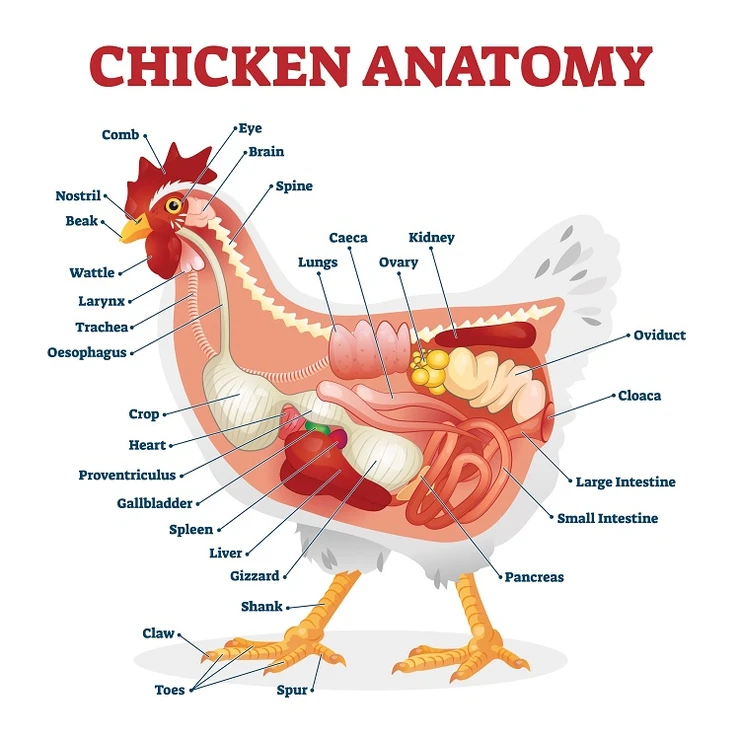
Photo Credits: Chickens&More/Chris Lesley
What Are The Symptoms Of Egg Binding?
Not every hen has the same symptoms, and sometimes symptoms are mild during the first few hours of egg binding and get more extreme after the hen has been bound for longer. Keep in mind, just because a hen hasn't laid or is showing these symptoms it doesn't mean she is egg bound.
Symptoms:
Loss of appetiteDisinterest in drinking
Acting stressed and going in and out of the nesting box repeatedly
Decreased activity
Shaky wings
Walking like a penguin
Bloated vent
Pasted vent
Constant uncharacteristic sitting
Passing wet droppings
Not being able to pass droppings
Droopy comb
Pale wattles
Butt feathers pumping
Feathers on lower back raised
Panting
Purple comb
Inability to roost
Limping due to egg putting pressure on nerves
Large abdomen
Notice the posture of the hen in the picture below. Her lower back feathers are lifted and her tail is pointing down. This is a classic stance of an egg bound hen. She also has a pale face and eyelids, even though her comb and wattles are red. Something I have seen in egg bound hens many times.
*This isn't info by a vet but from my personal experience*
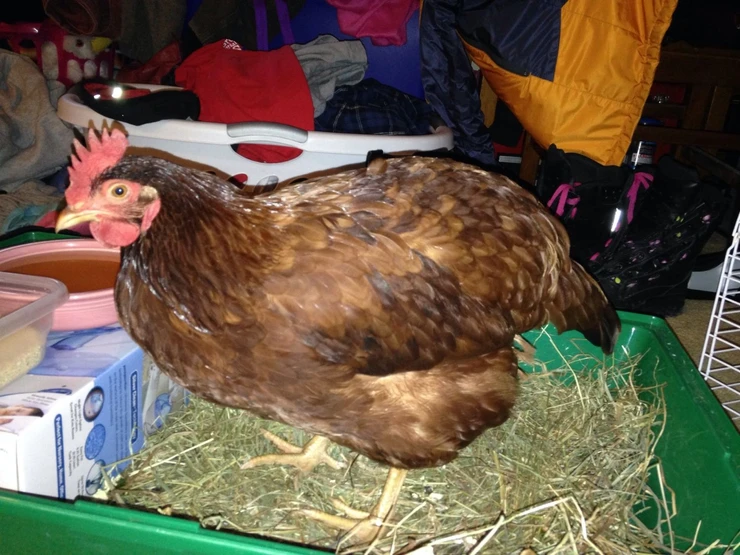
Photo Credits: [our4chix] from BackYardChickens
What Can Cause Egg Binding?
Stress:Cramped space/coop and run isn't big enough.
Uncomfortable weather like humid/hot summers, and cold winters.
An overload of Intestinal parasites.
Predators:
Chickens should be ok with seeing predators far away in the sky or around the yard and not be stressed, but predators including hawks, bears, and coyotes trying to get into the run, attacking your chickens, or stalking them will make them stressed.
A new coop/A recent move/New flock members:
Moving to a new coop, or getting more flock members will cause your chickens to become stressed. The best way to combat stress caused by moving to a new coop, or getting more flock members is to make sure you are taking it slow and minimizing any stressors. You can also add enriching food or toys to keep them calm/busy.
Egg retention:
A hen might "hold in" an egg when her favorite nesting box isn't available or, there aren't enough nesting boxes. This will cause her to become egg bound, as well as cause damage to her muscles. To make sure your hens don't "hold in" their eggs try using the ratio of 1 nesting box per 4 hens, (but the more the better), as well as making all the boxes identical so there isn't a specific nesting box everyone wants to use.
Obesity:
An overweight hen will have to strain more when laying since her muscles have become weak. The muscles cant contract correctly causing the egg to be stuck. Make sure you aren't giving too many fatty snacks, and that they are receiving a proper, well rounded diet.Premature laying:
A hen that is laying prematurely will lay an egg before her body is ready causing her to become egg bound. Make sure you aren't giving your young hens artificial light to try to make them lay early.
A calcium deficiency:
Calcium isn't needed just for strong bones and eggshells, hens also need calcium to help their muscles contract correctly so they can push eggs out.
Genetics:
Hens bred for production purposes alongside petite hens have a higher chance of becoming egg bound.
Dehydration:
A dehydrated hen will have a harder time laying her egg because her oviduct is dry. Make sure their water bowl is always clean and filled. Some hens will refuse to drink from a dirty water bowl so make sure they have access to clean water all the time. If you believe your hen is suffering from dehydration (or the whole flock even) give her/them hydro hen or another hydrating supplement in the water.
A nutritional deficiency:
Your hens need to get the correct amount of protein, vitamins, and minerals like selenium, vitamin E, vitamin D3, and magnesium to lay their eggs, a deficiency will cause problems.
Large or misshaped egg:
A large or misshaped egg can get stuck in the oviduct and cant be pushed out. In worst-case scenarios, a large or misshaped egg can get stuck and block not only itself but another egg in the oviduct. This can happen when an egg is stuck high up in the oviduct long enough for another egg to be created and pushed by the contractions, causing a 2 egg traffic jam.
Oviduct infection and disease:
If a hen has an infection in her reproductive tract her muscles will weaken. If your hen is battling a disease it can cause the oviduct to swell, making it harder to ly the egg.
Soft shelled egg:
A soft egg is hard to push out, and most times cant be pushed/laid.
Weather:
Extremely cold weather can stiffen a hen's egg laying muscles.
What You Need For An At Home Treatment
It's important to try to keep all these things on hand since they are useful in emergencies. They can be purchased at your local grocery, online, and farm animal stores.
Tums or (calcium carbonate):
This is the most easily available calcium boost for your egg bound hen. It can be purchased pretty much at any grocery store/gas station.
Dose: one tum's crushed.
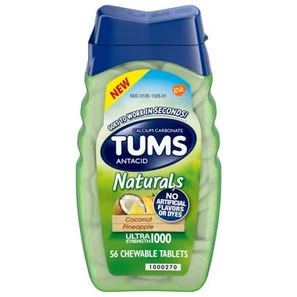
Calcium Gluconate:
This is meant for cattle but can be given to egg bound hens as a calcium boost, to help their muscles contract. Make sure the bottle says sterilized and not terminally sterilized. You will also need a needle and syringe.
Dose: 1cc for bantams and 3-5 cc for standard or large breed given only once.

Epsom Salt:
Try to use nonscented every time. I'm not sure if scented Epsom salt can cause problems but those perfumes are strong, and chickens have sensitive respiratory tracts. If all you have on hand is scented Epsom salt, try to keep their face away from the water.

A Tub:
You will need a tub big enough to soak your hen correctly (water should almost reach her back). You can use a sink, wide bucket, a tub, anything goes.
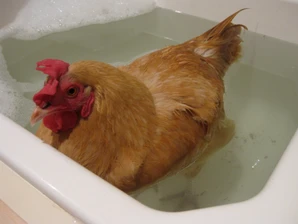
Photo Credits: Backyard Hencam
Oil:
You will need some oil, or vaseline to put around/in her vent to help her pass the egg easier. This is what I used, you can also use warmed coconut oil.

Gloves:
Use gloves when applying oil to/in the vent to keep away problems caused by being unhygienic.
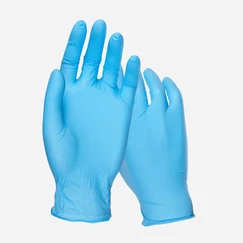
Towels:
It's a good idea to have a few towels set aside specifically for chicken use. You will need these to dry her off after the bath.

Hair Dryer:
You can also use a hairdryer to dry her off.
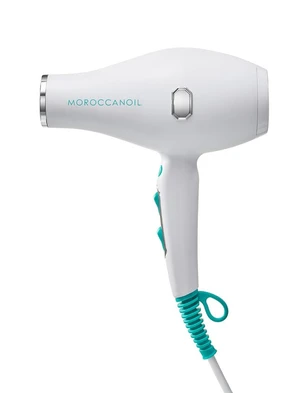
At Home Treatments For A Egg Bound Hen
Now that we have talked about symptoms and causes we will talk about the at home treatment. Before you start to treat her, you will want to know where exactly the egg is stuck to help you understand the situation better. This can be done in three different ways.
The first way is to keep your hen in an isolated area where you can monitor her poop. This can only be done if she has eaten food/or has a fullish crop. Monitor her for 15 minutes. If in that time she hasn't pooped her body has probably already shut off the intestines and the egg is near to the vent. If she is pooping/has pooped in the past 20 minutes the egg is probably stuck somewhere higher up, in the oviduct.
*note this is experimental and probably has a 70%-90% chance of being accurate.*
The second option is to glove up and lubricate your finger. You're going to insert your finger pointing slightly upwards. Push your finger in about an inch or so to feel for an egg. If you feel an egg be careful to not push it further up. If you don't feel an egg then it may be further up still or, she may not be egg bound. (this would mean something else is causing her to act this way). If you did feel an egg apply some more oil or vaseline to your finger and lubricate inside her oviduct to help the egg pass more easily.
The third opt
The photo shows the exact area where you need to massage and the vid shows how to massage to feel for an egg.
(I can't figure out how to make the vid smaller so my apologies in advance
Next, give your hen a crushed-up tum or calcium gluconate. Either one will give her a much-needed calcium boost and help her muscles contract. Give her whichever one you have but never both.
If you are giving her tums (calcium carbonate) see if she won't eat it directly from your hand (broken into bite-sized pieces) if not, crush one tum into a crumble and mix with scrambled eggs, or yogurt and give it to her, if she still refuses, break the tums into 4-6 pieces and put them in her mouth one by one, she should swallow them without too much fuss.
The other option is to give her calcium gluconate. It's meant for cows but is safe for chickens too. The bottle needs a needle and syringe for you to pull out the liquid. The calcium gluconate along with the syringe and needles can be bought at most farm stores including TSC. The dose is 1 cc for small bantams and 3-5 cc's for bigger/standard birds. Make sure the bottle says sterilized and not terminally sterilized. After pulling the correct dose out of the bottle remove the needle from the syringe and slowly drop the liquid into her mouth, allowing her a few breaks to swallow.
Now that your hen has gotten a calcium boost you are going to soak her in an Epsom salt bath. Just make sure that it's deep enough so that the water will cover her vent and almost reach her back. Add around 1-2 cups of Epsom salt. The bigger the container the more Epsom salt you want to add. Then mix well with your hand, scraping the bottom to make sure all the salt has dissolved. Make sure the water is warm but not too hot for her.
(pro tip: use your elbow to check water temperature since it's more sensitive to heat than your hand or palm.) She might struggle to get out but should calm down in a few minutes. She will need to soak for 20-30 min. If possible try giving her some snacks to keep her busy. Next, pull her out and dry her off carefully with a towel or hairdryer.
The next step is to put her in a chicken hospital in a quiet and darkened area, below are some examples.
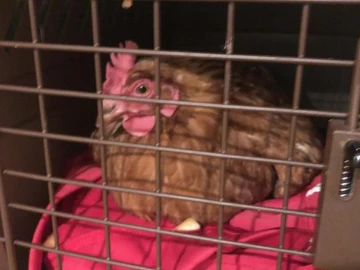
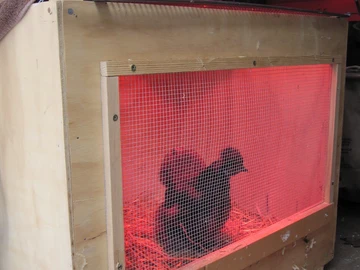
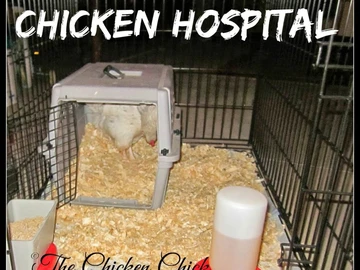
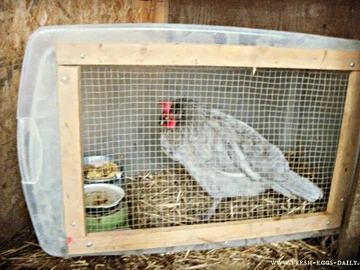
Photo Credits: 1.Medfield02052's blog 2.Tilly's Nest 3.The Chicken Chick 4.Fresh Eggs Daily
If you don't have a dog crate or a DIY chicken hospital on hand you will need to quickly put one together. What makes a good chicken hospital for any sick or injured chicken, especially an egg-bound hen? You can use a large cardboard box, a crate, a mini tent, pretty much anything. Next, make sure you have good bedding and plenty of it. Make sure it's big enough for her to stand and move a little bit. Something that's 1x1x1ft or 1x1x2 ft is good as a minimum. Putting her back in the coop/run even if she's in the chicken hospital isn't a good idea because she needs peace and quiet to lay. The noises and any peeping toms may make her feel uncomfortable and unable to lay. Make sure wherever you put her that it's not cold or hot, we want her to be as stress-free as possible. Some examples are in the house, garage, or shed. If you do not have anywhere else to keep her she can stay in a makeshift chicken hospital in the coop but make sure she has enough privacy and that you check up on her often.
Before you put her in your chicken hospital, glove up, move her vent feathers aside and massage some veggie oil, warmed coconut oil, or vaseline on/in her vent to help the egg pass. Put her in the chicken hospital in a darkened place, and wait for 1 hour. If you go to check on her after the 1 hour has passed and see she has made a nest or looks to be in an egg-laying position this is a good sign so leave her for another hour. If she still hasn't laid you will need to repeat the bathing process up to 4 times. If you are lucky the egg will have been passed by now (YAY!).
Sometimes even with the Epsom salt bath's the egg won't pass. What should you do now? By now there are usually two outcomes. If you can see the egg poking out of the vent you can still do an at home treatment. If you look at the picture below, you can see that the egg is stuck at the vent. If you leave your hen with that egg as is it could either remain stuck and kill her from internal infection or, if she is successful in pushing out the egg she will get a prolapsed/torn vent. You don't want to deal with either of these so here is what you need to do.
Before you go any further watch this youtube vid that shows exactly how to treat this problem.

Photo Credits: The Whittier Housewife
REMEMBER TO BE VERY CAREFUL
This is something dangerous that needs to be done with patience and a steady hand. This is a dangerous last resort solution that could do more harm then good if done incorrectly. You will need to prep the hen as well as yourself. Give her a quick soak to get her butt feathers wet. Next, wrap her in a towel to constrict her wings and lay her on her side. Then put some gloves on and get to work. The first step is to poke a small hole (a toothpick works) in the egg, then get a syringe with no needle attached, and gently start to pull out the contents of the egg. After you have finished use a pair of tweezers to grab the egg shell from where you made the hole and slowly pull it out.
If it breaks that's ok but try keeping the broken pieces attached to the membrane. All the eggshell pieces have to come out otherwise they can cut and infect her oviduct. You can flush any remaining eggshells or goop out, by using a syringe or turkey baster filled with veggie oil and inserting it into her vent to flush her oviduct. Be careful and gentle so you don't cause damage to her oviduct walls. Now that you are finished she will need to be kept in a darkened place with food and water to heal for a few days. (A darkened place like a garage or inside your house will discourage her body from laying.) Add some hydro hen or chicken probiotics to her water to give her some good bacteria to fight off any infections. After the egg is officially out she should perk up in a few hours and be eating and drinking on her own.
If you cant see the egg, she hasn't laid, or she seems to be getting worse anytime during the at home treatment, the best thing to do is to contact a vet. If you don't have one search for a vet in your area who will treat chickens. Once she is back home from the vet, follow the same procedure and keep her in a darkened area for a few days. (or follow vets instructions)
If you don't have a vet or for whatever reason can't take her to one, you can reach out to me and I will help out. You can also ask for and receive great advice here on BYC.
What's Next?
If your hen has successfully laid her egg during the Epson salt bath(s) and is feeling/acting well she can be put back with the flock automatically.
If your hen had to have the egg removed via "the syringe method" or went to the vet she will need a few days to recuperate in a darkened room, (or follow the vet's directions) before being added back to her flock.
If you did the "syringe method" and she's still not 100% back to normal she may have some eggshell stuck inside or her oviduct may be infected. Make sure you are giving her probiotics to give her good bacteria. She will also need to be treated with a broad spectrum antibiotic like fish amoxicillin to fight off infection (link to dosage here). When treating for an oviduct infection with fish amox the treatment lasts for 2 weeks.
No matter what type of treatment was done she should be getting better. One of the most noticeable signs that your hen is doing better is that she has regained her appetite. A hen without an appetite is not an ok hen. To boost her appetite try feeding her scrambled eggs, raw egg yolk, yogurt, layer pellets, canned fish and raw herbs like basil, and oregano that have antibiotic properties. (The herbs can be cooked into the eggs for her).
If she isn't getting better, something else may be wrong with her. If possible take her to a vet, if not you will need to get a better understanding of her symptoms to find the problem.
Sometimes hens abruptly stop laying eggs for various reasons, and it's not always a reason to be alarmed.
Some are not life-threatening including:
Molting
Aging
Less daylight
The weather
Being broody
Etc
Some are life-threatening including:
Stress
Egg peritonitis
Malnutrition
Sickness
Dehydration
Infection in body
Etc
If you believe something life-threatening is wrong with your hen, read up on what the symptoms mean to understand exactly what is wrong, then inform yourself of the causes, prevention, and treatment to help her.
What Are Some The Ways To Prevent Egg Binding?
Now that we have talked about everything else we are going to talk about the prevention plans to keep your hens happy and lower the chances of egg binding.A Hens Diet:
Make sure you are giving them good feed for example layer feed. Your hens need enough protein in their diet to help them make eggs. Always have free choice calcium near their food, and don't overdue unhealthy treats.
Also make sure you are not overdosing or under-dosing on their vitamins, minerals, fatty acids, omegas, and anything else they need. They are very important and even though they are small but have a big role in your chicken's body.
Keep Stress Levels Low:
Hens don't like a lot of stressful changes in their routine. Things like a new coop or flock members can cause them to become stressed. So when making changes in their routine try to make changes slowly and watch for signs of stress. During times of stress, you can give them something like Kicken Chicken. It helps with eggs, stress, molting, and the immune system.
kicken chicken
Nesting boxes:
Make sure you have enough nesting boxes for each hen. A good ratio is 1 box per 4 hens. I personally have 5 boxes for my 11 hens. Something else to remember is that some hens need more privacy than others. Try giving their nesting boxes little curtains to make them feel more comfortable.
Internal Parasites:
Chickens will end up with parasitic worms in their systems for loads of different reasons. For instance, earthworms, slugs, snails, and other bugs carry parasitic worms. When your chickens eat them they end up with the parasitic ones too. You can take a poop sample to the vet to test for worms. You can also prevent an overload of worms by naturally making the gut inhabitable for parasites using pumpkin and garlic or this recipe.
My Hens Not Egg Bound But I'm Not Sure What Wrong!
If it turns out your chicken isn't egg bound but she is still acting off and getting worse what could be wrong? If she has similar symptoms she could be suffering from:
Water belly
Egg peritonitis
Internal laying
Impacted crop
Digestion issues
These are different from egg binding but can still lead to death. If your chicken is dealing with any of these feel free to message me so we can talk more in depth about what seems to be going on.
Conclusion:
When a hen becomes egg bound it's scary. Especially if it's your first time dealing with it. I remember the first time I thought I had an egg bound hen. I scrambled through blog after blog and YouTube video after YouTube video to find answers. Some things left me with more questions than answers! That's why I hope my article has helped you feel more certain about what you're dealing with. If you still have any questions or are confused about anything feel free to contact me.And don't forget you got this

With lots of love,
Chicken Vet Of Our Flock
UPDATES:
This and all my other articles will be updated every now and then if I see any grammar mistakes, or if I need to update or add in information. Please feel free to comment or message me if you see mistakes in grammar or information!
Credits:
This article was written solely from my experience, so please do not accuse me of stealing anything from anyone else. I did need to refresh my memory on some terms and info and those are credited below.
Below are the credits to information and facts that helped me write this article. A huge thank you to everyone who gave me permission to use their photos.
-Calico Moon Farm for the dose of Calcium Gluconate
-Donna of DirtyBirdFarm for the worm preventative recipe
- youtube video of egg stuck near vent by Alaska Urban Hippie
- Lisa Steele for her photo
- Heather Zubiate for her photo
- Osler Peterson for his photo
- And everyone else!
Cited Articles:
- https://www.purinamills.com/chicken...y-eggs-understanding-your-egg-laying-chickens
- https://vcahospitals.com/know-your-pet/egg-binding-in-birds
- https://4hlnet.extension.org/how-does-a-hen-make-an-egg/







